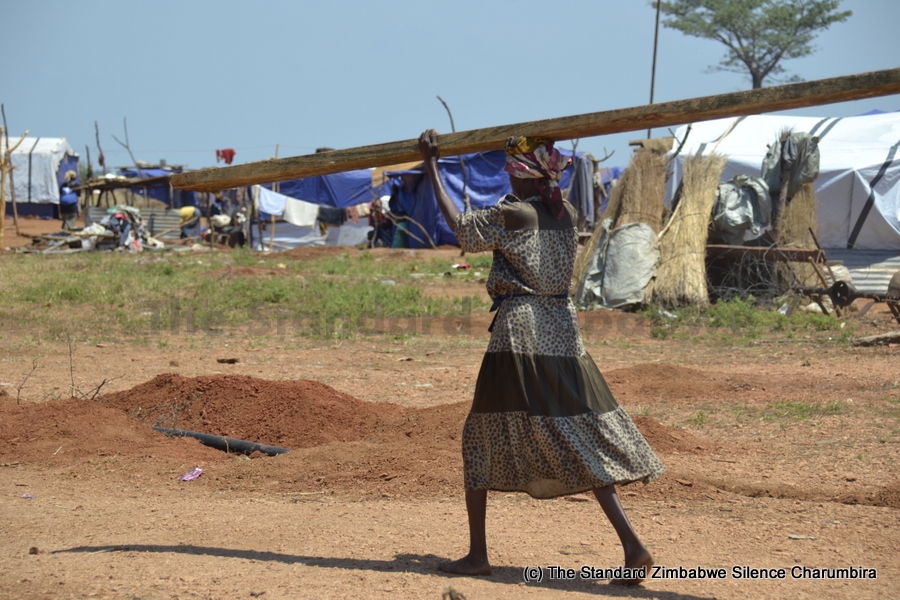
It’s a Saturday morning and Ambuya Gladys Madyangove (73) painstakingly wraps up her thin body with a dirty “worn out” blanket as she desperately tries to keep herself warm in the chilly weather. She is sitting in her galvanised tin cabin.
By Terry Mutsvanga
Her three grandchildren stay put, ignoring her endless pleas to get up and eat porridge.
“This is the only breakfast that I can afford to provide them until their next meal in the evening.
“It’s very difficult to survive under these conditions and I put everything in the hands of God,” she said as tears trickle down her wrinkled cheeks.
Ambuya Madyangove is one of thousands of villagers who were kicked out of Tokwe Mukosi village by government in 2014 following a “man-made” flood, which was triggered by the spilling of the Tokwe Mukosi Dam.
According to her narration, following the evictions, she left behind her modest homestead, which she had called home since 1963.
Together with close to 3 500 families, she was forced off her home by police officers who herded them to trucks before dumping them at Chingwizi Transit camp, 150km away. They were moved again after about a year to settle on one-hectare plots where she is now living under sub-human conditions with little access to food and sanitation.
- Chamisa under fire over US$120K donation
- Mavhunga puts DeMbare into Chibuku quarterfinals
- Pension funds bet on Cabora Bassa oilfields
- Councils defy govt fire tender directive
Keep Reading
To add misery to her plight, Ambuya Madyangove lost her husband to malaria, which is rampant in the area.
“I lost my husband because of malaria and have been struggling to make ends meet ever since. He was the breadwinner and it is now difficult to raise my grandchildren alone,” she said.
Julius Chizete (33) narrated how schoolchildren had been affected by the relocation from Tokwe Mukosi as the “tent school” that is available lacks basics such as textbooks and teachers.
“There is no schooling that is taking place here at Chingwizi as the tent school doesn’t have basics such as books and there are unqualified teachers,” he said. “Our children have been affected by this displacement and it’s unfair.”
Chizete said some parents were now sending their children to faraway places so that they complete their Ordinary Level but that was risky as cases of rape and assault were rife. “Some parents are now sending their kids to Ngundu growth point or Zunga Secondary school, which are some 55km from here, but there are cases of girls being raped since they will be staying alone,” he said.
“The future of our kids has been compromised.”
Reports that the government is planning to move the Chingwizi villagers again have triggered fresh panic in the community.
Tasara Wamambo, the founder and director of Tokwe Mukosi People’s Resettlement and Rehabilitation Trust (TMPRRT), said the people had been abused in the last three years.
“What has happened to the people of Tokwe Mukosi is unthinkable,” he said.
“it is very unfair to prioritise developmental issues over humanity and the reason why this country went to war was the land issue.
“The government has been very unfair to the villagers by making empty promises of compensation for years without fulfilling any.
“For three years, we have been pleading with the government to compensate the villagers with little success and some of the villagers are now deceased as a result of stress-related diseases and this is very unfair.”
TMPRRT was instrumental in pushing for compensation of a handful of families in 2011 and 2013.
The trust played a crucial role in sourcing foodstuffs and other basics in 2014 when the villagers were dumped at Chingwizi Transit camp.
President Robert Mugabe declared the Tokwe Mukosi flooding a disaster and recently he commissioned the multi-million dollar dam project which has great prospects for fishing and gaming businesses.










